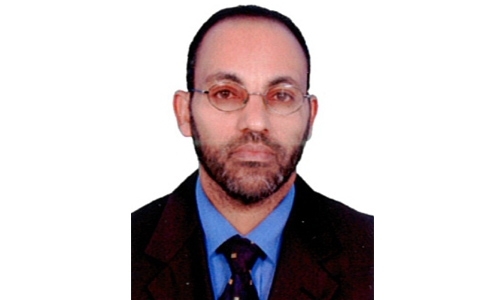Post Deash Iraq doesn’t seem rosy
The so called Islamic State (Daesh) is on the verge of collapse. The question is: Will its eventual elimination ushers peace and stability to Iraq? Political pundits are pessimistic, given the existence of scores of militant groups promoting own agenda, with divergent interests.
The pieces of evidence show that the country will be far from being stable for some time to come. Observers say that to avoid infighting and blood- letting, the warring factions need to reach a comprehensive political settlement before matters go out of control.
The motives behind the warring factions indicate that each group has its own interests. The Kurds want an ‘independent state’ something the governing Shia party strongly opposes. The Iranian factor has also been a point of contention among ordinary Iraqis. Iran has been and continues to meddle in Iraqi’s state affairs and in fact it has infiltrated every government establishment.
Last week Iran named a new ambassador to Iraq, General Iraj Masjdi, a Quds force commander and an Iranian Revolutionary Guard official, who has years of experience working with Shiite militants allied to Iran. The General is expected to promote Iranian influence in every government organ ranging from politics to economy to security matters.
The sectarian conflict between Sunnis and Shias is well established and too much talked about. The new conflicts involving the inter-Shia political parties for power and the dangerous Shia –Kurd confrontation have recently attracted the interests of political observers.
The Northern Iraq, the birth place of Kurds, which is currently witnessing brutal wars with Daesh, remains the flash point of conflict between Shias and Kurds. The Kurds want every Deash (IS) liberated area to be included in the ‘Kurdish autonomy’, most of which is rich in oil. This idea doesn’t appear to go well with the central government controlled by the Shia political parties.
The ultimate aim of the Kurds is believed to be to carry out a referendum and create an independent state ‘Kurdistan’.
Reuters in its April 20, 2017 issue reported that the main Shia political parties strongly oppose the expected Kurdish referendum for independence.
Ammar al-Hakim, president of the National Alliance, a coalition of main Shiite political parties, said that the Iraqi Shiite ruling coalition would oppose Kurdish plans to hold a referendum on independence after the defeat of Islamic State. He continued, “If the referendum happens, it will be unilateral and advised the Kurds against any unilateral move to annex a disputed oil- rich region which they had gained during the war against the Jihadists”.
The ‘Kurdish dream’ will likely destabilize Iraq. Last week, the Kurdish flag was raised on government buildings in Kirkuk province, the strong hold of Kurds. The move has received strong condemnation from the ruling party.
As the Kurd and Shiites squabble, the Sunnis are also drafting their proposals to at least administer their own provinces and end the presence of Iran backed Shiite militias from their regions that are currently committing alleged crimes against the local population and promote sectarian killings.
Years of fighting shows that there remains a deep mistrust among the three major sects in Iraq. The Sunnis, Shiites, Kurds do not seem to live together side by side as it was in the old days.
The way forward depends on the governing party’s readiness to share power and include other sects in the political discourse of the country. The ball is in the ruling Shiite party’s court.
Pundits predict that in the absence of political inclusiveness, there is a great possibility that Iraq will remain unstable for years to come. And that Iran will fill the security and intelligence vacuum through its proxy militias, throwing Iraq into worst political crisis it has ever witnessed in its history.
Related Posts

